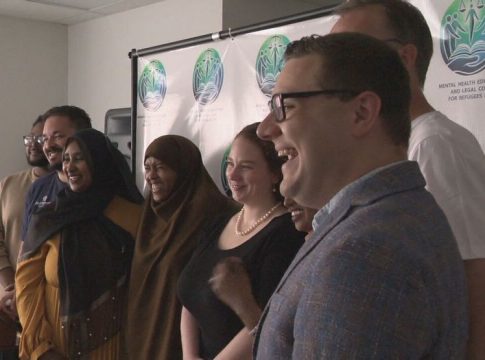New Resource for Refugees: Bridging the Gap Between Legal Rights and Mental Health
In Rochester, New York, a promising initiative has emerged to support refugees by offering essential education about their legal rights and mental health resources. The newly established Mental Health Education & Legal Code for Refugee Rights Incorporated aims to empower this often marginalized community, breaking down barriers to care.
Understanding the Barriers
Many refugees face significant challenges when seeking mental health services, including cultural stigma and a lack of familiarity with the healthcare system. Hani Ali, the executive director of the organization, highlights a critical issue: "There is a stigma that creates a barrier between refugees and mental health professionals." This disconnect can inhibit individuals from accessing the support they truly need.
For many refugees, the journey toward mental well-being often involves navigating complex legal landscapes. With different cultural perspectives on mental health, it can be daunting for them to find their footing in a new environment. This facility seeks to change that narrative.
Empowering Through Education
Empowerment begins with education. The new facility focuses on providing refugees with vital knowledge and resources that can significantly impact their lives. By offering insights into both their legal rights and available mental health services, the organization is fostering a supportive atmosphere where refugees can learn to advocate for themselves effectively.
Here are a few key offerings at the facility:
-
Workshops on Legal Rights: Understanding legal rights is essential for navigating life in a new country. Knowledge can reduce anxiety and promote a sense of control.
-
Mental Health Guidance: Participants will learn how to approach therapy and psychiatric services, as well as the importance of setting personal mental health goals.
- Cultural Sensitivity Training for Providers: By encouraging mental health professionals to understand the unique experiences of refugees, the organization promotes better collaboration and effective care.
Creating a Safe Space
The facility aims not only to educate but also to create a nurturing environment where refugees feel comfortable discussing their mental health. This safe space can be a source of solace and empowerment, helping individuals to articulate their struggles and aspirations.
Conclusion: A Path to Healing
The launch of this facility represents a significant step forward in addressing the mental health needs of refugees. By breaking down barriers and fostering education, it empowers individuals to navigate their new lives with confidence. As mental health becomes an integral aspect of overall well-being, the ability to set personal goals and seek help becomes both attainable and transformative.
If you or someone you know is navigating similar challenges, consider reaching out to local resources or support networks that can offer guidance and understanding. Remember, seeking help is not only a sign of strength but also an essential step toward healing and well-being.

Covers wellness, nutrition, mental health, and daily life tips.
Bio: Talia brings a background in health journalism and holistic living to help readers live better, one tip at a time.

